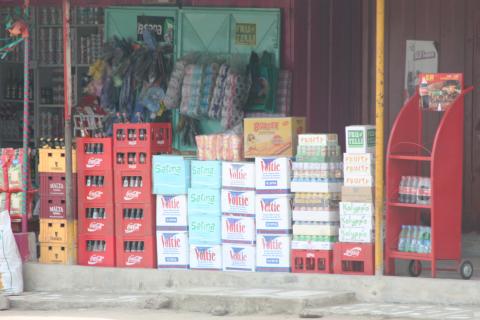
In the latest development of an ongoing melee between Ghanaian traders and foreign shop owners, the traders have refused to reopen shops they locked-up, in spite of a police order to do so.

The enraged traders operating under the banner of the unionized Ghana Union Of Trade Associations or GUTA, had last week demonstrated against the government's perceived ‘slackness’ in dealing with their complaints concerning the implementation of a law which bars foreigners from engaging in petty trading.
They then followed up with a forcible lock-up of all such businesses in the city of Kumasi, Ghana's second largest metropolis, and also the capital of the Ashanti region.
Nigerians seem to be the most affected in this whole showdown.
A directive from the Ashanti Regional command of the Ghana Police Service ordered members of GUTA to reopen the shops, those belonging mostly to Nigerian retailers, that were locked up on Monday July 14th. But according to witnesses providing up-to-the-minute details, and as at press time, the directive is yet to be complied with.
According to the police command, it is an unlawful act to close the shops as it infringes on the rights of the Nigerian traders, but GUTA also presents a counter argument, citing the Ghana Investment Promotion Act 865 2013. That act explicitly bars them from establishing businesses in the first place.
Meanwhile, Chief Kizito Ike Obiora, the Spokesperson for Nigerian Union of Traders Association in Kumasi, told the press that the shops remain locked and any attempts to engage GUTA for an ‘amicable solution’ has proved unsuccessful.
“Yesterday, the commander gave us assurance. In our presence, he ordered the executive of GUTA to open the shops. At the moment, they haven’t opened it, so we are still waiting for them” Ike Obiora said.
Recently, Haruna Iddris, the Minister of Trade and Industry had set up a 13-member committee to check the influx of foreigners into the local retail trade.
Ghana and Nigeria have a history of trade tensions, which have in the past resulted in the deportation of each others nationals.